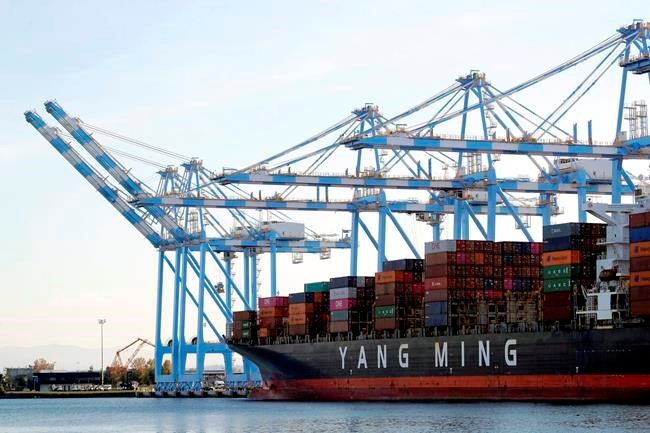SILVER SPRING, Md. — The level of imported goods to the U.S. in January reached unprecedented levels and pushed the trade deficit 1.9% higher as the coronavirus pandemic continues to distort global commerce.
The gap between the goods and services the United States sold and what it bought abroad rose to $68.2 billion from $67 billion in December, the Commerce Department reported Friday. Exports rose 1% to $191.9 billion, while imports increased 1.2% to $260.2 billion.
Imports of goods, not including services, increased $3.4 billion to a record $221.1 billion in January, led by pharmaceuticals, which rose $5 billion, or 39%, to $17.4 billion. Imports of services fell about 1%.
The figure exceeded the previous record for imported goods of $218.9 billion set in October, 2018.
U.S. exports of goods rose $2.1 billion to $135.7 billion in January, while exports of services, like transport and travel, declined $0.3 billion to $56.3 billion.
The politically sensitive trade gap with China fell 3.2% to $27.2 billion. The trade deficit with Mexico rose $1.6 billion to $11.9 billion in January.
The coronavirus has upended trade in services such as education and travel, sections of the economy in which the United States runs persistent surpluses. Measured in dollars, monthly exports of U.S. services have declined by nearly one-fourth since the virus outbreak about a year ago.
Year-over-year, the goods and services deficit climbed to $23.8 billion, or 53.7%, from January 2020.
Last month, Commerce reported that in 2020, U.S. trade deficit rose 18.1% to $682 billion, the highest since 2008, as the coronavirus threw global commerce into disarray and stymied then-President Donald Trump’s attempts to rebalance America’s trade with the rest of the world.
Friday's January trade data release is the last to include the period covering the Trump administration, which started a trade war with China and imposed steel and other tariffs on American allies that upended seven decades of U.S. policy.
President Joe Biden and his team have so far tiptoed around Trump’s hardline trade policies. Biden hasn’t called off Trump’s trade war with China or suggested he would scale back the tariffs on imported steel and aluminum.
Biden’s pick for his administration’s top trade negotiator, Katherine Tai, has promised to make sure that U.S. trade policy benefits America’s workers, not just corporations, and to engage more with U.S. allies to counter an increasingly assertive China.
Tai is waiting to be confirmed by the full Senate. Fluent in Mandarin, Tai spent several years as the Office of the U.S. Trade Representative’s head of China enforcement.
Matt Ott, The Associated Press




